
The Heartbeat of Kuwait: Kuwait City Center
Welcome to Kuwait City Center, the pulsating heart of Kuwait City. This vibrant neighbourhood is a fascinating blend of modernity and tradition, offering tourists an immersive experience into Kuwaiti culture and lifestyle. Here, you'll find the perfect juxtaposition of towering skyscrapers and historic landmarks, creating a dynamic atmosphere that is unique to this part of the world. Begin your exploration at the iconic Kuwait Towers, a symbol of the country's post-independence era, providing panoramic views of the city and the Arabian Gulf. Venture through the bustling Souq Al-Mubarakiya, one of the oldest markets in Kuwait, where you can haggle for spices, perfumes, textiles, and traditional crafts. The souq is not just a shopping destination but a cultural experience, with its narrow alleys and vibrant stalls. For a taste of contemporary Kuwait, visit The Avenues, one of the largest shopping malls in the Middle East. Beyond its vast array of international brands, The Avenues also houses numerous dining options, ranging from fast food to fine dining, catering to all tastes. Don't miss the opportunity to stroll along the Gulf Road, where you can enjoy the scenic seaside promenade and visit the many cafes and restaurants offering stunning views of the water. Cultural enthusiasts will appreciate the numerous museums and galleries dotted around the city center. The Tareq Rajab Museum showcases an impressive collection of Islamic art, while the Modern Art Museum offers insights into the region's contemporary art scene. Kuwait City Center is also home to several beautiful mosques, including the Grand Mosque, known for its exquisite architecture and serene ambiance. Whether you are a history buff, a shopaholic, a foodie, or an art lover, Kuwait City Center has something to offer every traveler. Its unique blend of old and new ensures that your visit will be filled with memorable experiences and discoveries.
Local tips in Kuwait City Center
- Visit early in the morning or late afternoon to avoid the midday heat.
- Dress modestly to respect local customs and traditions.
- Carry cash, especially in the souqs, as not all vendors accept credit cards.
- Try local delicacies such as machboos and mutabbaq in the traditional restaurants.
- Use the local taxi apps for convenient transportation within the city.
The Heartbeat of Kuwait: Kuwait City Center
Welcome to Kuwait City Center, the pulsating heart of Kuwait City. This vibrant neighbourhood is a fascinating blend of modernity and tradition, offering tourists an immersive experience into Kuwaiti culture and lifestyle. Here, you'll find the perfect juxtaposition of towering skyscrapers and historic landmarks, creating a dynamic atmosphere that is unique to this part of the world. Begin your exploration at the iconic Kuwait Towers, a symbol of the country's post-independence era, providing panoramic views of the city and the Arabian Gulf. Venture through the bustling Souq Al-Mubarakiya, one of the oldest markets in Kuwait, where you can haggle for spices, perfumes, textiles, and traditional crafts. The souq is not just a shopping destination but a cultural experience, with its narrow alleys and vibrant stalls. For a taste of contemporary Kuwait, visit The Avenues, one of the largest shopping malls in the Middle East. Beyond its vast array of international brands, The Avenues also houses numerous dining options, ranging from fast food to fine dining, catering to all tastes. Don't miss the opportunity to stroll along the Gulf Road, where you can enjoy the scenic seaside promenade and visit the many cafes and restaurants offering stunning views of the water. Cultural enthusiasts will appreciate the numerous museums and galleries dotted around the city center. The Tareq Rajab Museum showcases an impressive collection of Islamic art, while the Modern Art Museum offers insights into the region's contemporary art scene. Kuwait City Center is also home to several beautiful mosques, including the Grand Mosque, known for its exquisite architecture and serene ambiance. Whether you are a history buff, a shopaholic, a foodie, or an art lover, Kuwait City Center has something to offer every traveler. Its unique blend of old and new ensures that your visit will be filled with memorable experiences and discoveries.
Iconic landmarks you can’t miss
Sheikh Jaber Al-Ahmad Cultural Centre
Explore the Sheikh Jaber Al-Ahmad Cultural Centre, a stunning cultural hub in Kuwait City offering theatre, art, and breathtaking architecture.
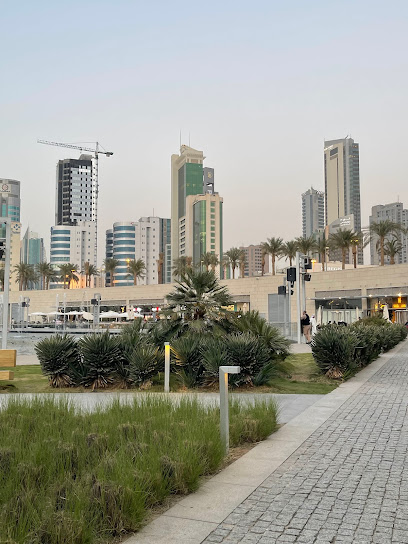
Souq Al Kuwait
Explore Souq Al Kuwait, a vibrant shopping mall in the heart of Kuwait City, blending traditional culture with modern shopping experiences.
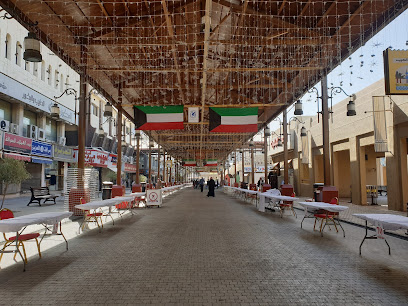
Al Bahhar Entertainment Historical Village
Discover the rich heritage of Kuwait at Al Bahhar Entertainment Historical Village, where history and culture come alive.
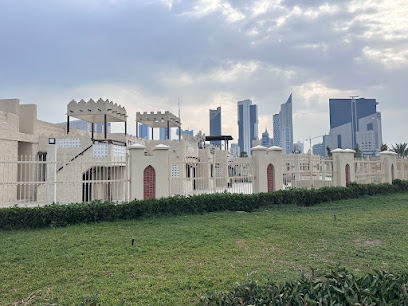
Dar Al Awadi Tower
Explore the dynamic Dar Al Awadi Tower in Kuwait City, a perfect blend of shopping, dining, and cultural experiences in a stunning architectural setting.
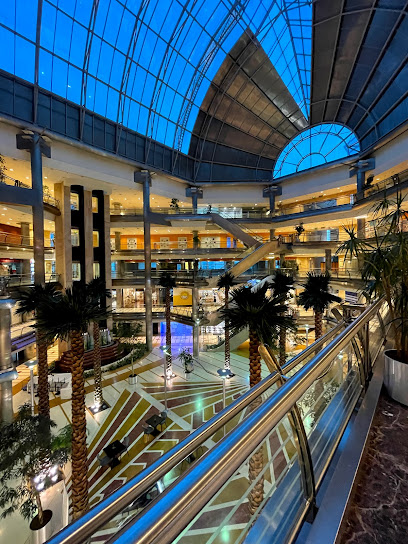
Crystal Tower
Experience the stunning architecture and breathtaking views of Kuwait City from the iconic Crystal Tower, a modern business center and architectural marvel.
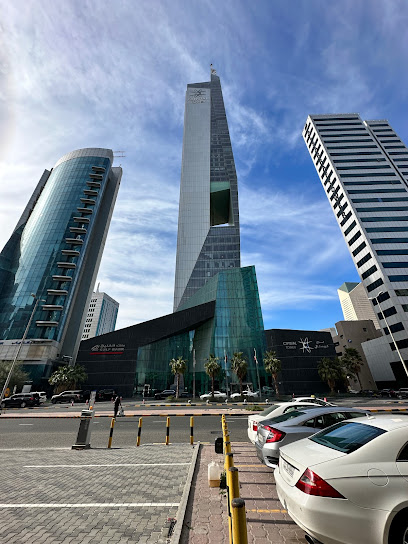
Kuwait National Museum
Discover Kuwait's rich heritage at the Kuwait National Museum, where history, art, and culture come together in a captivating experience.
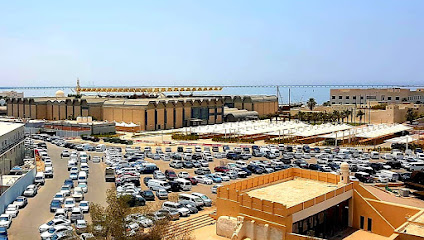
Kuwait city
Experience the unique blend of tradition and modernity in Kuwait City, a shopper's haven filled with cultural gems and stunning architecture.
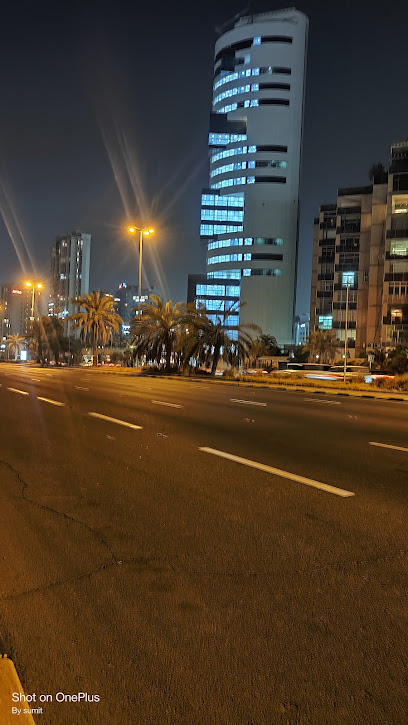
Dar Al Awadi Complex
Explore the vibrant Dar Al Awadi Complex in Kuwait City, a premier shopping destination with diverse retail, dining, and entertainment options.
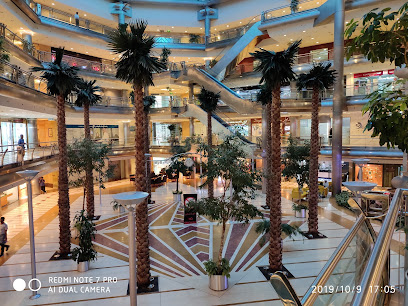
Dickson House Museum
Explore Kuwait's captivating history at the Dickson House Museum, where tradition meets modernity in a beautifully preserved setting.
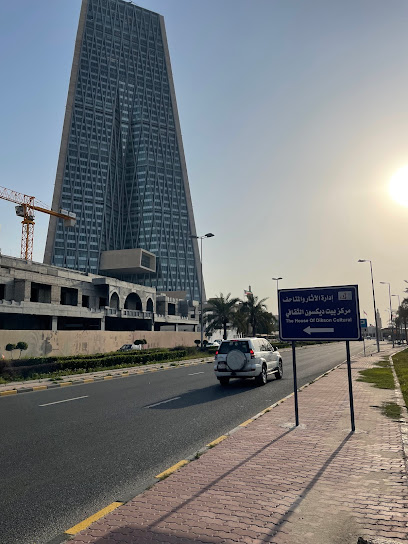
Khaleejia Square
Discover the vibrant Khaleejia Square in Kuwait City: a unique shopping mall blending retail, dining, and cultural experiences for every tourist.
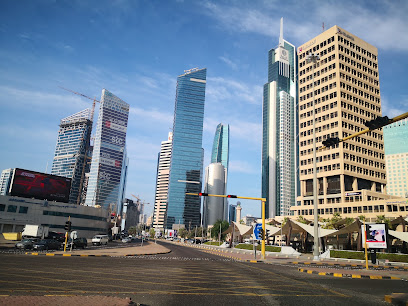
Unmissable attractions to see
Sheikh Jaber Al-Ahmad Cultural Centre
Explore the Sheikh Jaber Al-Ahmad Cultural Centre, Kuwait's premier destination for arts, culture, and stunning architecture in the heart of the city.
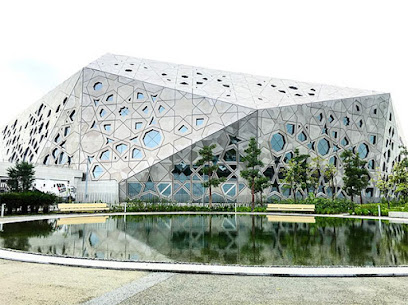
Cartoon Network World
Experience the magic of your favorite cartoons come to life at Cartoon Network World, Kuwait's ultimate theme park for family fun and adventure.
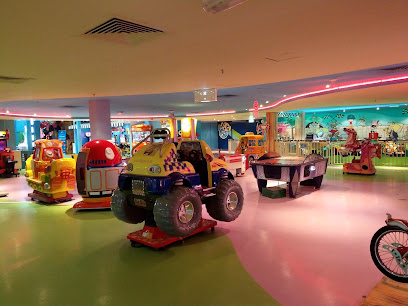
متحف الموطن
Discover Kuwait's rich history and vibrant culture at the Kuwait Museum, an essential stop for every traveler in Kuwait City.
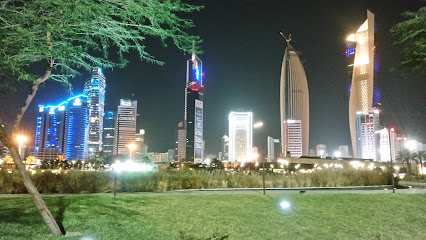
Essential places to dine
Mais Alghanim
Experience authentic Lebanese cuisine at Mais Alghanim in Kuwait City - where tradition meets taste in every bite.
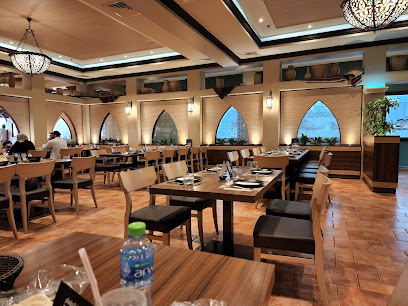
Tatami Japanese Restaurant
Discover the essence of Japanese cuisine at Tatami Japanese Restaurant in Kuwait City – where tradition meets culinary artistry.
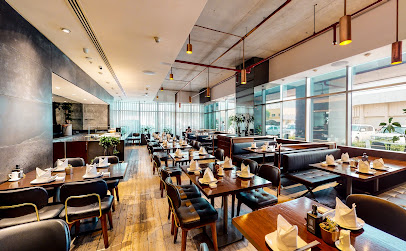
ave restaurant
Experience culinary excellence at Ave Restaurant in Kuwait City - where Japanese cuisine meets modern flair in an inviting atmosphere.
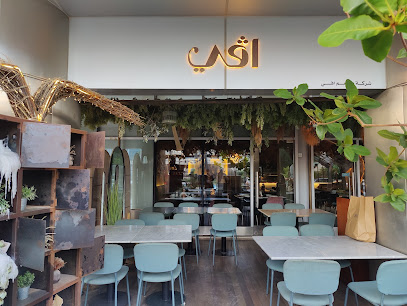
GIA - Kuwait City
Discover authentic Mediterranean flavors at GIA - Kuwait City's premier destination for delicious meals in a vibrant atmosphere.
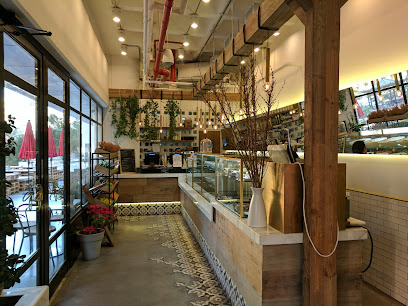
Melenzane - Al Harma Mall
Experience authentic Italian flavors in the heart of Kuwait City at Melenzane - Al Harma Mall, where every dish delights your palate.
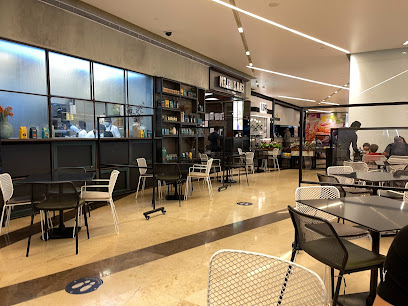
The Place
Experience the vibrant flavors of Kuwait at The Place – home to delicious Biriyani Balls and exceptional dining in Kuwait City.
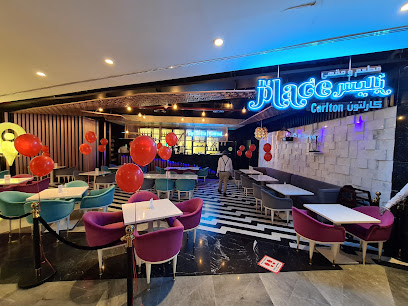
Jade Garden Restaurant Kuwait City
Experience the vibrant tastes of Asia at Jade Garden Restaurant in Kuwait City - where family dining meets exquisite seafood delights.
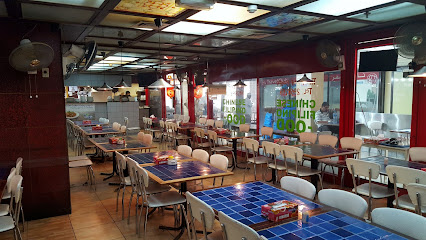
Recco
Experience authentic Italian cuisine at Recco in Kuwait City - where tradition meets taste.
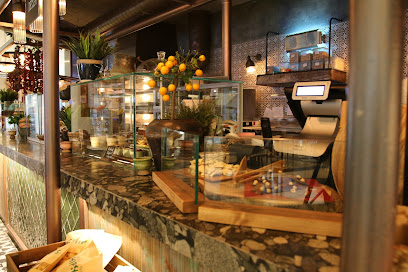
Le Tarbouche Lebanese Restaurant
Experience the flavors of Lebanon at Le Tarbouche, where authentic dishes meet stunning views in the heart of Kuwait City.
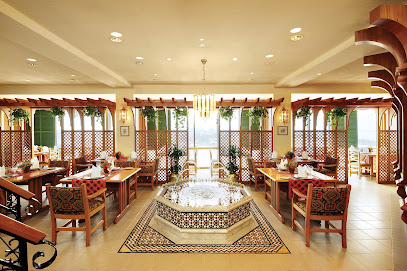
Al Bandar
Experience the vibrant flavors of American cuisine blended with health-conscious dishes at Al Bandar in Kuwait City.
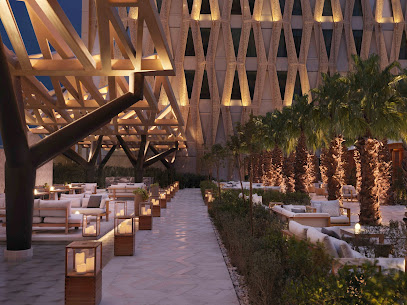
Markets, malls and hidden boutiques
The Avenues
Discover the ultimate shopping experience at The Avenues in Kuwait, where luxury brands meet diverse dining and entertainment options.
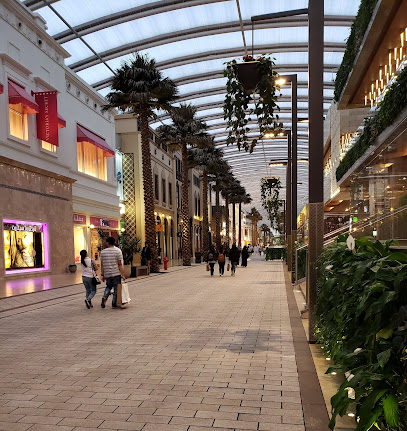
Avenues Mall Phase 4
Explore Avenues Mall Phase 4 in Kuwait: A premier shopping hub with diverse retail, dining, and entertainment options for every traveler.
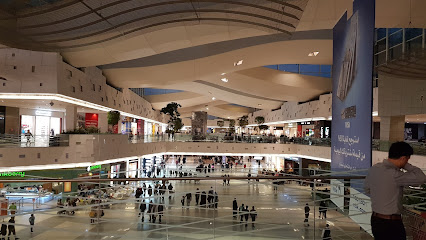
Souk Sharq
Experience shopping, dining, and entertainment at Souk Sharq, a lively mall in Kuwait City with stunning views of the Arabian Gulf.
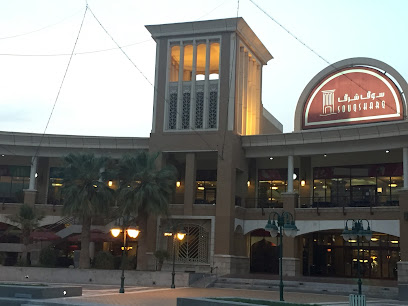
City Hypermarket
Discover a vast array of products at City Hypermarket in Salmiya, Kuwait's premier shopping destination for locals and tourists alike.
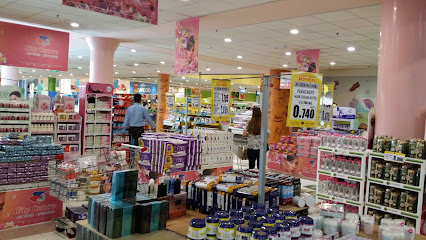
Assima Mall
Discover the vibrant blend of shopping, dining, and entertainment at Assima Mall in Kuwait City, a must-visit destination for every traveler.
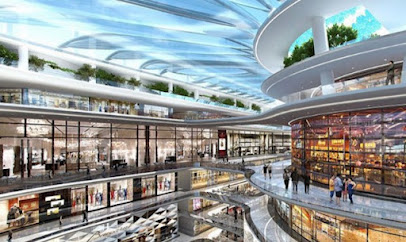
Souk Al Watiya
Explore Souk Al Watiya, the vibrant shopping mall in Kuwait City, where tradition meets modernity through shopping, dining, and cultural experiences.
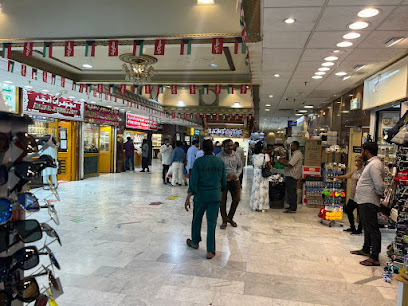
Souq Al Kuwait
Discover the vibrant shopping and cultural experience at Souq Al Kuwait, a must-visit destination in the heart of Kuwait City.
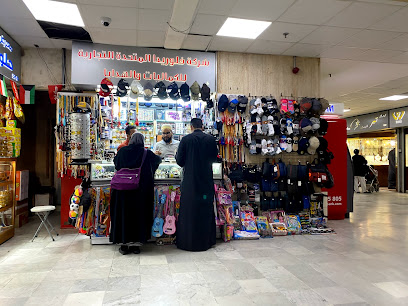
Design District Kuwait | Premium Lifestyle Shopping Center, Shuwaikh
Experience the fusion of culture and commerce at Design District Kuwait, where shopping meets artistry in a vibrant setting.
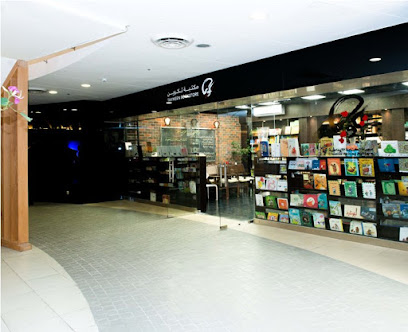
V.i.P Centre Mubarakiya
Explore the vibrant V.i.P Centre Mubarakiya in Kuwait City, a shopping haven with a diverse range of stores and delightful local cuisine.
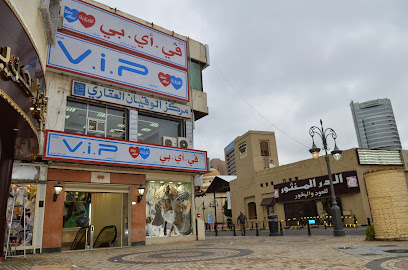
Kuwait city
Explore the vibrant culture, stunning architecture, and unique shopping experiences in the heart of Kuwait City, a jewel of the Middle East.
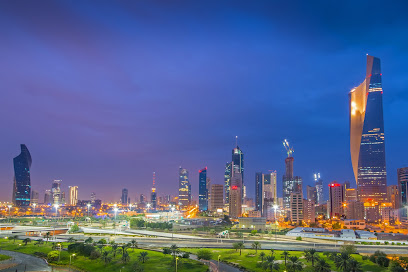
Piaget
Explore the luxurious realm of Piaget, where exquisite jewelry and watches reflect the pinnacle of craftsmanship and elegance in Kuwait City.
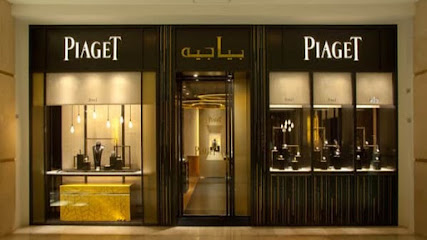
the B side giftshop
Explore The B Side Giftshop for unique handcrafted souvenirs and personalized gifts in the heart of Kuwait City, celebrating local craftsmanship.
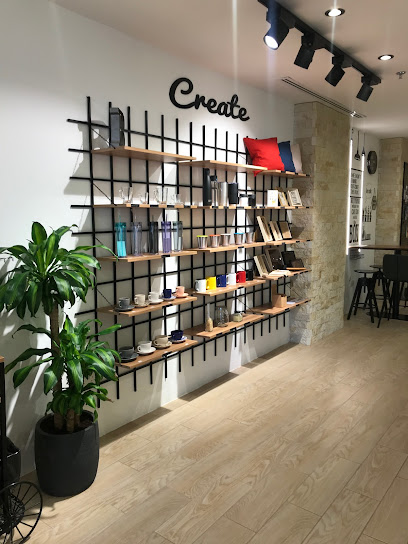
Boutique N
Discover contemporary fashion and local design at Boutique N, a premier shopping destination in Kuwait City, located in the iconic Al Hamra Tower.
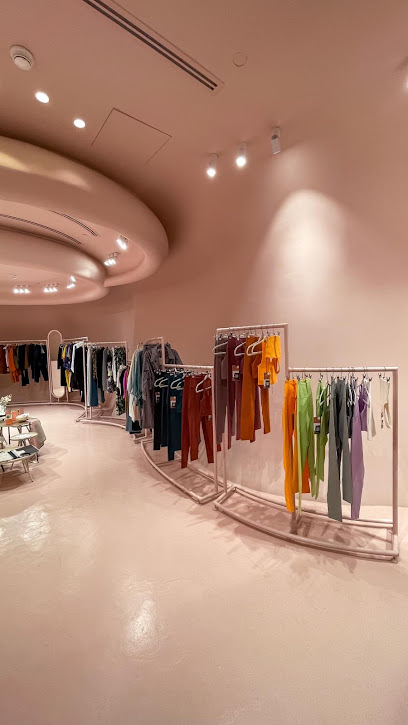
Daiso Japan - Dasma City Center
Explore Daiso Japan at Dasma City Center for an exceptional shopping experience with a vast selection of affordable home goods, beauty supplies, and unique gifts.

Chandra Online shopping
Discover a shopping haven at Chandra Online Shopping in Kuwait City, where local culture meets global brands in a vibrant retail experience.

Essential bars & hidden hideouts
LIVUP ROOFTOP
Experience culinary delights and breathtaking views at LIVUP ROOFTOP, Kuwait City's premier rooftop dining destination.
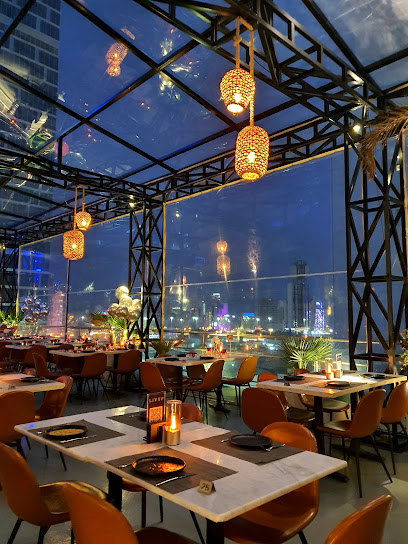
The Roof
Discover The Roof, Kuwait's premier rooftop restaurant offering stunning views, delicious cuisine, and a vibrant atmosphere perfect for any occasion.
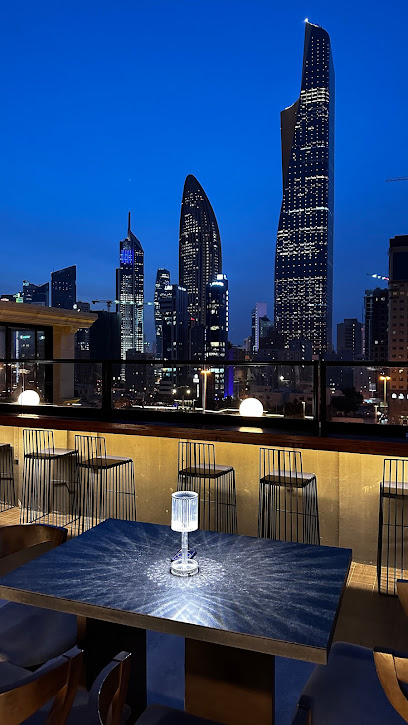
Cevapi Restaurant
Experience authentic Balkan cuisine at Cevapi Restaurant, where the warmth of hospitality meets the delightful taste of grilled perfection.
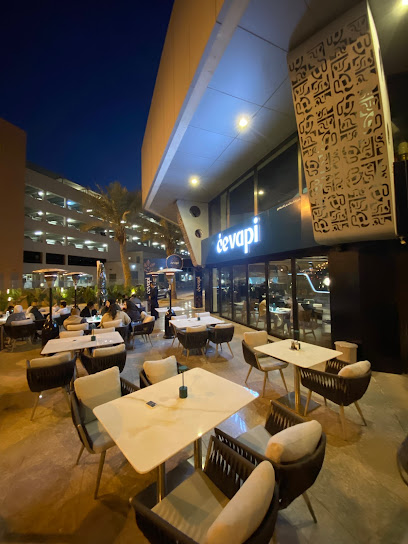
Gio lounge
Experience culinary excellence and vibrant nightlife at Gio Lounge, where exceptional cuisine meets a chic atmosphere in the heart of Kuwait City.
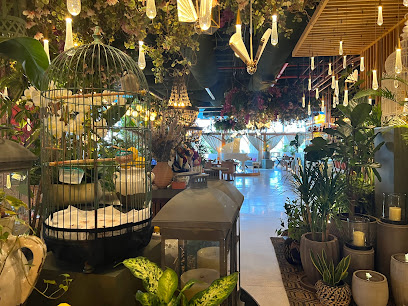
Bowery
Indulge in a unique dining experience at Bowery, where Kuwait's culinary traditions meet innovative flavors in a vibrant atmosphere.
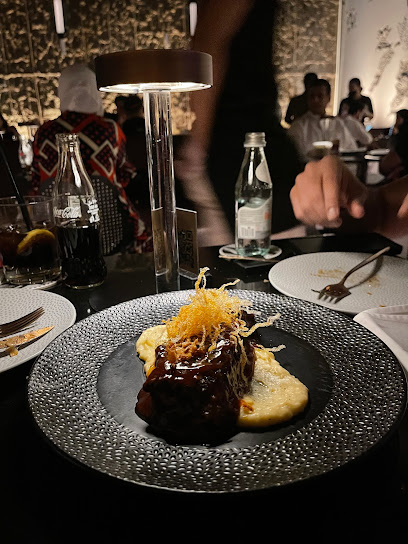
The Place
Discover the vibrant flavors of Kuwait City at The Place, renowned for its unique Biriyani Balls and inviting atmosphere.
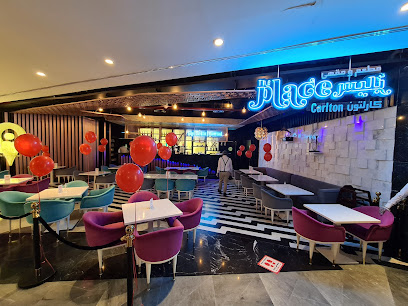
12.22 Lounge
Experience the ultimate relaxation at 12.22 Lounge in Kuwait City, where style meets comfort in a vibrant setting.
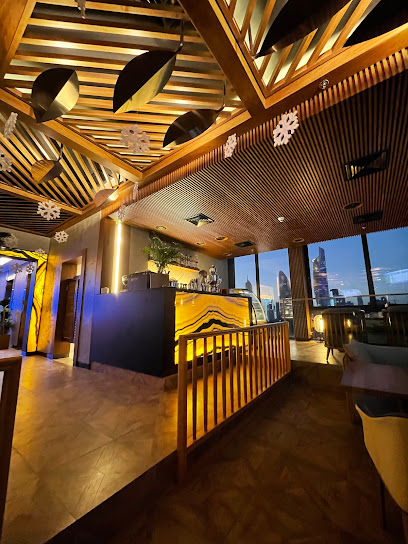
Pinolo Ristorante
Discover authentic Italian flavors at Pinolo Ristorante in Kuwait City, where every dish is a celebration of Italy's culinary heritage.
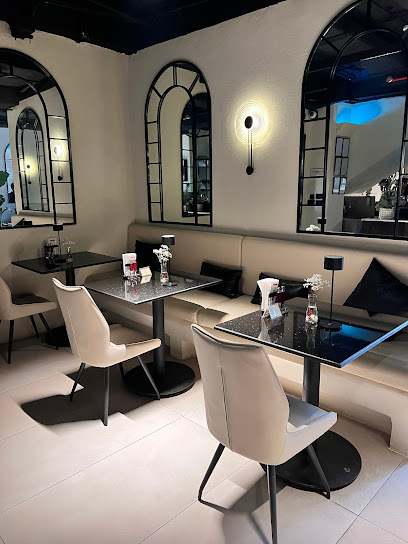
Little Ruby’s
Discover a culinary gem at Little Ruby's, where Italian flavors meet New American creativity in the heart of Assima Mall, Kuwait City.
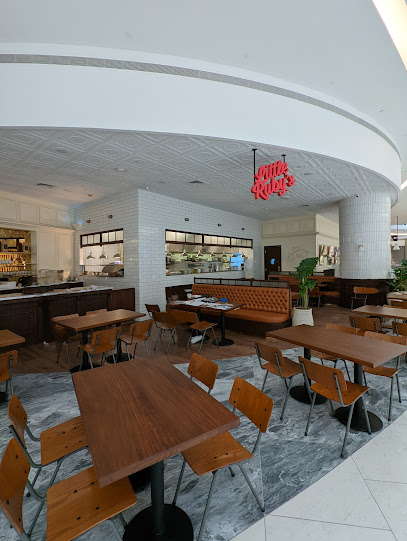
Al Bandar
Experience the vibrant culinary scene at Al Bandar in Kuwait City, where American flavors meet healthy dining in a lively atmosphere.
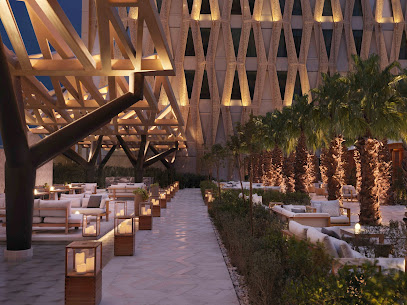
Local Phrases
-
- Helloمرحبا
[marhaba] - Goodbyeوداعا
[wada'an] - Yesنعم
[na'am] - Noلا
[la] - Please/You're welcomeمن فضلك
[min fadlik] - Thank youشكرا
[shukran] - Excuse me/Sorryعذرا
['udhran] - How are you?كيف حالك؟
[kayf halik?] - Fine. And you?بخير. وأنت؟
[bukhayr. wa'ant?] - Do you speak English?هل تتحدث الإنجليزية؟
[hal tatahadath al'injlizia?] - I don't understandأنا لا أفهم
[ana la afham]
- Helloمرحبا
-
- I'd like to see the menu, pleaseأريد أن أرى القائمة، من فضلك
[urid an ara alqaima, min fadlik] - I don't eat meatأنا لا آكل اللحم
[ana la aakul allahm] - Cheers!في صحتك!
[fi sahtik!] - I would like to pay, pleaseأريد أن أدفع، من فضلك
[urid an adfa', min fadlik]
- I'd like to see the menu, pleaseأريد أن أرى القائمة، من فضلك
-
- Help!النجدة!
[alnajda!] - Go away!انصرف!
[ansarif!] - Call the Police!اتصل بالشرطة!
[atassil bilshurtah!] - Call a doctor!اتصل بالطبيب!
[atassil baltabib!] - I'm lostلقد ضللت الطريق
[laqad dailalt altariq] - I'm illأنا مريض
[ana mareed]
- Help!النجدة!
-
- I'd like to buy...أريد أن أشتري...
[urid an ashtari...] - I'm just lookingأنا فقط أتفرج
[ana faqat atfarruj] - How much is it?كم هو ثمنه؟
[kam huw thamanuh?] - That's too expensiveهذا غالي جدا
[hatha ghali jiddan] - Can you lower the price?هل يمكنك خفض السعر؟
[hal yumkinuk khaafd als'ar?]
- I'd like to buy...أريد أن أشتري...
-
- What time is it?كم الساعة؟
[kam alsaa'a?] - It's one o'clockالساعة الواحدة
[alsaa'ah alwahidah] - Half past (10)الساعة العاشرة والنصف
[alsaa'ah al'ashirah wannahf] - Morningالصباح
[alsabah] - Afternoonالمساء
[almasa'] - Eveningالمساء
[almasa'] - Yesterdayأمس
[ams] - Todayاليوم
[alyawm] - Tomorrowغدا
[ghadan] - 1واحد
[wahid] - 2اثنان
[ithnan] - 3ثلاثة
[thalatha] - 4أربعة
[arba'ah] - 5خمسة
[khamsah] - 6ستة
[sittah] - 7سبعة
[sab'ah] - 8ثمانية
[thamania] - 9تسعة
[tisa'ah] - 10عشرة
[asharah]
- What time is it?كم الساعة؟
-
- Where's a/the...?أين...؟
[ayn...?] - What's the address?ما هو العنوان؟
[ma huwa al'anaan?] - Can you show me (on the map)?هل يمكنك أن تريني (على الخريطة)؟
[hal yumkinuk an tureeni (ala alkhareeta)?] - When's the next (bus)?متى القادم (الحافلة)؟
[mata alqadim (alhafilah)?] - A ticket (to ....)تذكرة (إلى...)
[tadhkira (ila...)]
- Where's a/the...?أين...؟
History of Kuwait City Center
-
Kuwait City's history is deeply intertwined with its coastal location and maritime trade. Established in the 18th century, the area around Kuwait City Center became a significant hub for merchants and traders, facilitating the exchange of goods between the Arabian Peninsula and neighboring regions. The strategic position along the Persian Gulf allowed Kuwait to thrive as a trade center, leading to the establishment of a prosperous trading community.
-
In 1752, the Al-Sabah family settled in Kuwait, marking the beginning of the emirate's ruling dynasty. The Al-Sabahs played a crucial role in the development of Kuwait City, with the Center becoming a focal point for governance and administration. The construction of the first fort, Al Jahra Fort, in the late 18th century reinforced the city's importance as a regional power.
-
The discovery of oil in the 1930s transformed Kuwait City Center from a modest trading post into a booming economic center. The oil boom led to rapid urbanization and development, with significant investments in infrastructure, education, and healthcare. This era marked the beginning of Kuwait's modern identity, with the City Center becoming a symbol of wealth and progress.
-
The Gulf War in 1990-1991 had devastating effects on Kuwait City, including the destruction of many buildings and infrastructure within the City Center. Following the war, Kuwait underwent a significant reconstruction effort, which included the revitalization of the City Center, restoring its cultural landmarks and modernizing its facilities to accommodate a growing population and economy.
-
In recent years, Kuwait City Center has experienced a cultural renaissance, with an emphasis on arts, heritage, and tourism. Initiatives such as the Kuwait Cultural Center and various festivals have fostered a vibrant cultural scene. The City Center now serves as a hub for both local and international events, showcasing Kuwaiti heritage and modernity.
Kuwait City Center Essentials
-
Kuwait City Center is easily accessible from various neighborhoods in Kuwait City. If you're coming from the airport, the most convenient option is to take a taxi, which takes around 15-20 minutes, depending on traffic. Public buses also connect the airport to the city center, but they may take longer due to multiple stops. From neighborhoods like Salmiya or Hawalli, taxis are readily available, or you can use ride-hailing apps. The metro system is under development, but for now, buses and taxis are the primary modes of transport.
-
Kuwait City Center is primarily navigated by taxi, which is the most convenient way to get around. Local buses are also available, but their routes may not cover all tourist attractions directly. Walking is a pleasant option in some areas, especially along the waterfront and shopping districts. For a unique experience, consider renting a bicycle from local rental shops to explore the city at your own pace.
-
Kuwait City Center is generally safe for tourists, with low crime rates. However, it is advisable to stay cautious, especially in less crowded areas during night-time. Areas to be more vigilant include public transport stations and crowded marketplaces. Keep your belongings secure and avoid displaying valuable items unnecessarily.
-
In case of an emergency, dial 112 for police, fire, or medical assistance. Hospitals and clinics are located throughout the city center, with the American University of Kuwait Hospital being a notable facility. It is advisable to have travel insurance that covers emergencies. For minor health issues, pharmacies are widely available and often have English-speaking staff.
-
Fashion: Do dress modestly, especially in public places and when visiting religious sites. Avoid overly revealing clothing. Religion: Do respect local customs; refrain from public displays of affection. Public Transport: Do give up your seat to the elderly or those in need. Don't eat or drink on public transport. Greetings: Do greet with a friendly handshake; a smile goes a long way. Eating & Drinking: Do try local dishes and accept food offers graciously. Don't refuse hospitality, as it may offend your hosts.
-
To experience Kuwait City Center like a local, visit the local souks where you can buy spices, textiles, and traditional handicrafts. Engage with the local community—Kuwaitis are often hospitable and eager to share their culture. Don't miss the Kuwait Towers and the Grand Mosque for a deeper understanding of Kuwaiti heritage. For a taste of local life, explore the cafes and eateries that serve traditional dishes like machboos and falafel.
Nearby Cities to Kuwait City Center
-
Things To Do in Farwaniya
-
Things To Do in Kuwait City
-
Things To Do in Hawalli
-
Things To Do in Salmiya
-
Things To Do in Sabah Al-Salem
-
Things To Do in Ahmadi
-
Things To Do in Mangaf
-
Things To Do in Fahaheel
-
Things To Do in Basra
-
Things To Do in Amara
-
Things To Do in Al Jubail
-
Things To Do in Dammam
-
Things To Do in Al Khobar
-
Things To Do in Najaf
-
Things To Do in Budaiya













